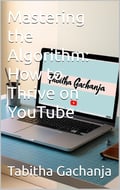When writing, one of the common challenges is knowing how to correctly punctuate the titles of creative works such as books, films, and songs. Using the right punctuation not only improves readability but also shows professionalism and attention to detail.
In this article, we’ll explore the standard rules and style conventions for punctuating titles of books, films, and songs, supported by examples for each category.
General Principle: Differentiating Types of Works
The way you punctuate a title often depends on the type of work it represents. English writing conventions typically divide titles into two categories:
-
Longer works: Usually italicized or underlined.
-
Shorter works: Usually placed in quotation marks.
Titles of Books
Books are considered longer works, so the standard practice is to italicize their titles in most styles. If italics are not available (e.g., in handwritten or typewritten documents), you can underline the title instead.
Examples:
-
To Kill a Mockingbird by Harper Lee
-
1984 by George Orwell
-
Pride and Prejudice by Jane Austen
Key Points:
-
Capitalize the principal words in the title (nouns, pronouns, verbs, adjectives, and adverbs).
-
Articles (a, an, the), conjunctions (and, but, or), and short prepositions (in, on, at) are usually lowercase unless they start the title or subtitle.
Titles of Films
Like books, films are also considered longer works, so their titles are italicized in formal writing.
Examples:
-
The Godfather
-
Inception
-
Casablanca
Key Points:
-
Follow the same capitalization rules as books.
-
When writing by hand or in environments where italics aren’t possible, underline the title instead.
Titles of Songs
Songs are considered shorter works, so the correct convention is to put their titles in quotation marks rather than italics.
Examples:
-
“Bohemian Rhapsody” by Queen
-
“Imagine” by John Lennon
-
“Hey Jude” by The Beatles
Key Points:
-
Capitalize principal words as with other titles.
-
Use double quotation marks (“ ”) in American English and usually single (‘ ’) in British English, though style guides differ.
Summary Table
| Type of Work | Punctuation Style | Example |
|---|---|---|
| Book | Italics or underline | Moby Dick |
| Film | Italics or underline | Star Wars |
| Song | Quotation marks | “Let It Be” |
Additional Notes on Subtitles and Series
-
When a book or film has a subtitle, separate it with a colon, and capitalize the subtitle’s first word.
-
Example: Harry Potter and the Sorcerer’s Stone: The Illustrated Edition
-
-
For works that are part of a series, capitalize each title appropriately and punctuate each as you would a standalone work.
Style Guide Variations
Different style guides may have slight variations:
-
APA style: Italicize book and film titles; use quotation marks for songs.
-
MLA style: Same as APA.
-
Chicago style: Italics for books and films; quotation marks for songs.
-
AP style: Uses quotation marks for book and film titles instead of italics because italics are generally avoided in journalism for simplicity.
Tips for Writing
-
Always be consistent within your document or publication—choose one style and apply it throughout.
-
When in doubt, check the preferred style guide for your field or publication.
-
Remember that the purpose of punctuation here is clarity for the reader, so make choices that aid understanding.
Conclusion
Correctly punctuating titles of books, films, and songs is an important skill that enhances your writing’s professionalism and clarity. Remember these key points:
-
Italicize titles of books and films (or underline if italics aren’t possible).
-
Use quotation marks for titles of songs.
-
Capitalize important words in all titles.
-
Be consistent and check style guides if necessary.
Mastering these conventions will help you write confidently and clearly, whether for academic work, journalism, creative writing, or everyday communication.


















0 comments:
Post a Comment
We value your voice! Drop a comment to share your thoughts, ask a question, or start a meaningful discussion. Be kind, be respectful, and let’s chat!